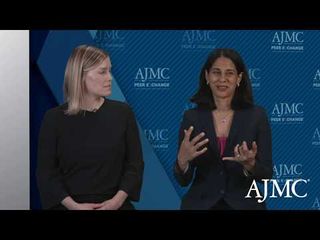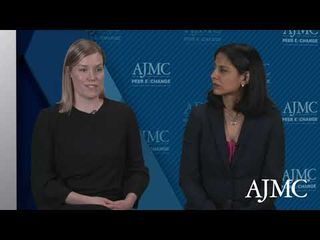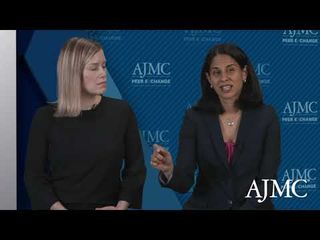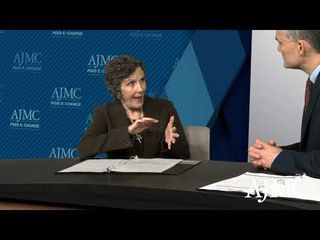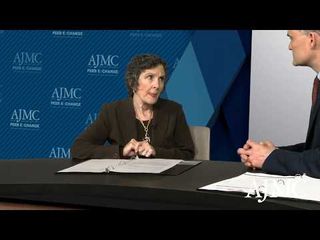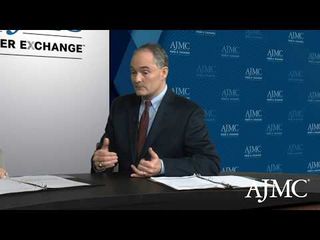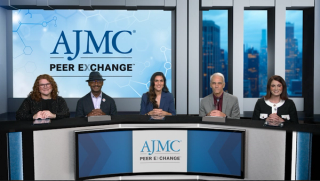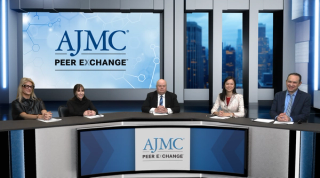
Clinical
Latest News

Video Series

Latest Videos
Shorts









Podcasts
CME Content
More News

Panelists discuss how addressing payer restrictions and leveraging data-driven advocacy are essential for timely access to care.

Patients with proinflammatory, pro-oxidative diets may face accelerated biological aging and increased skin cancer risk.

Allo-CAR-NK cell therapy shows promise in achieving long-term remission for patients with Waldenström lymphoma without chemotherapy.

Richter transformation with CNS involvement in CLL presents a poor prognosis, highlighting the need for tailored treatment strategies and further research.

Clascoterone cream 1% plus adapalene gel 0.3% offers an effective, well-tolerated topical option for moderate to severe acne, with combination therapy enhancing adherence and outcomes.

Teclistamab was approved to treat relapsed/refractory multiple myeloma under the FDA’s accelerated approval pathway in October 2022.

Poland’s LiBRha project will expand liquid biopsy and molecular testing nationwide to improve diagnosis, monitoring, and outcomes for children with soft tissue sarcoma.

Based on these findings, the investigators encourage further research into this promising combination.
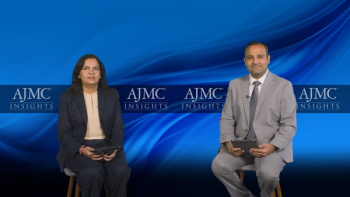
Explore the evolving treatments for IgA nephropathy, highlighting the shift towards proactive strategies and the role of Nefecon in patient care.

Explore the latest HER2-targeted therapies for non-small cell lung cancer, including treatment options and patient-centered decision-making strategies.

Standardized monitoring workflows and clearer reimbursement support are critical to improving community clinicians’ readiness to deliver bispecific antibodies safely in the outpatient setting.

ATALANTA-1 data presented at ASH 2025 showed remarkable response rates and rapid manufacturing with an investigational autologous CAR T-cell therapy.

Teclistamab plus daratumumab delivers unprecedented progression-free survival benefits over standard of care in relapsed/refractory multiple myeloma, while raising important questions about how best to sequence bispecific combinations with CAR T-cell therapy.

While earlier-line BCMA CAR T-cell therapy in multiple myeloma offers superior efficacy and longer treatment-free survival, careful monitoring and further research are needed to manage rare but serious toxicities.

ATALANTA-1 data presented at ASH 2025 showed remarkable response rates and rapid manufacturing with an investigational autologous CAR T-cell therapy.

While implementing bispecific antibodies in community oncology carries a steep learning curve, targeted education and stronger multidisciplinary collaboration can significantly improve clinician confidence and real-world uptake.

Timely initiation of targeted therapy is crucial for improving cancer outcomes and patient quality of life, especially for those with HER2 mutations.

Explore the evolving treatments for IgA nephropathy, highlighting the shift towards proactive strategies and the role of Nefecon in patient care.

Visual acuity and central macular thickness improved in patients with diabetic macular edema who used combined phacoemulsification and intravitreal dexamethasone implants.

Influenza surveillance is essential to accurately measure disease burden, guide policy, and strengthen preparedness for future pandemics, according to Marco del Riccio, MD.

Explore the latest strategies for selecting treatment regimens in HER2-positive breast cancer, focusing on safety and patient-specific factors.

Steven Stoner, PharmD, advises managed care teams to use rigorous diagnostic assessments, monitor adherence, and invest heavily in early patient follow-up to accurately attribute costs to treatment-resistant depression.

Explore the latest findings from the KATHERINE, PATINA, and HER2CLIMB-05 trials, highlighting advancements and challenges in breast cancer treatment.

Steven Stoner, PharmD, advocates for integrating patient-reported outcomes and digital monitoring to identify early treatment failure and justify utilizing highly effective therapies like dextromethorphan-bupropion sooner.

On average, patients with multiple prior dermatology visits still scored below 75% when identifying common skin cancer terms, underscoring the need for clearer patient-physician communication.



